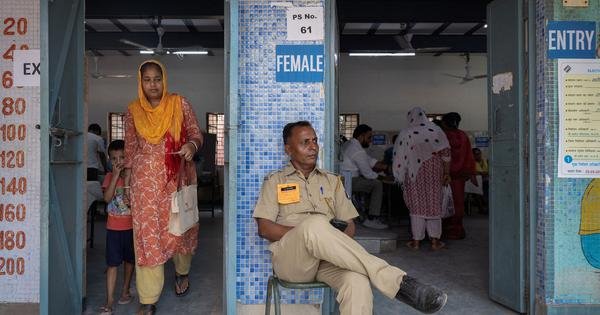Citizens Rally for Electoral Transparency: Six Essential Reforms
Citizens Urge Election Commission for Greater Voting Openness

A collective of 83 concerned citizens, known as “Vote for Democracy,” presented a memorandum to the Election Commission on Friday. They voiced their concerns about electoral transparency and outlined six key demands.
Six Crucial Demands for a Transparent Electoral Process
- Make voter lists public and searchable
- Disclose the source code of electronic voting machines
- Share Form 17C data from all booths and constituencies
- Publish aggregate vote counts for public review
- Provide public access to voter roll revision forms
- Generate Voter Verified Paper Audit Trails (VVPATs) for all EVMs
The memorandum stressed the importance of a searchable voter database, which enables citizens to confirm the accuracy of the voter list. Without this feature, it is impossible to ensure that all eligible residents are registered and that deceased individuals have been removed.
The memorandum questioned the secrecy surrounding the source code for voting machines, arguing that it should be open to scrutiny since it is responsible for recording and counting votes.
Form 17C and Voter Roll Revision Forms
The group requested that Form 17C data, which includes details like the number of registered electors and the number of votes recorded in the EVM, be made publicly accessible. They also demanded that voter roll revision forms (Forms 9, 10, 11, 11A, and 11B) be available in a transparent and searchable database.
Symbol Loading Units and VVPATs
A Symbol Loading Unit (SLU) is used to upload candidate names and symbols on the VVPAT unit, which verifies votes cast through EVMs. The group called for the release of complete data from each SLU used in elections and advocated for VVPATs to be generated for all EVMs in every election.
They also suggested that VVPAT slips be given to voters, who would then place them in a separate ballot box.
Addressing EVM Concerns
The group pointed out the technological vulnerabilities and procedural lapses that undermine the reliability of EVMs. However, they proposed that if their recommendations are implemented, it may not be necessary to revert to paper ballots.
Nevertheless, they maintained that paper ballots would be preferable if VVPAT machines cannot be strengthened.
Notable Endorsements
Prominent individuals who endorsed the memorandum include former Indian Administrative Service officer MG Devasahayam, former High Court judges D Hariparanthaman and BG Kolse Patil, and activist Teesta Setalvad.



